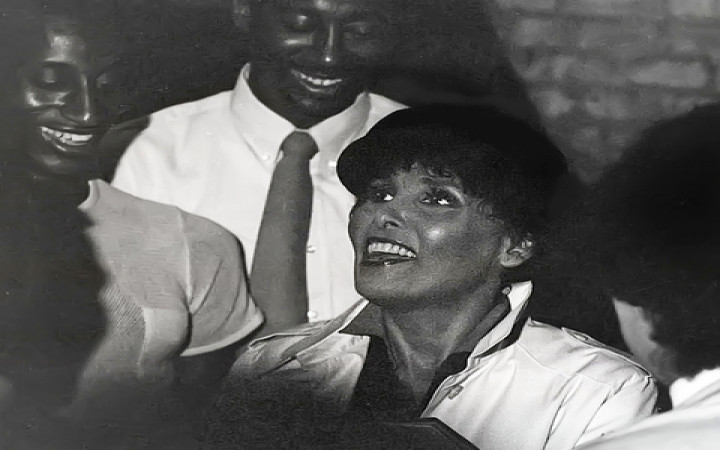Today’s Wonder of the Day was inspired by grace. grace Wonders, “Who was the first actress on Broadway?” Thanks for WONDERing with us, grace!
Do you have a passion? A passion is something you love to do—singing, writing, art, sports, or anything else you can think of. Many people have a passion for what they do. But it isn’t everyone who can use their passion to help others. Today’s Wonder is about one of those people! Lena Horne was a very talented musician who used her music to fight for civil rights. But who was Lena Horne?
Lena Horne was born in Brooklyn, New York, in 1917. Her mother was an actress and her father was a banker. Her parents separated when Lena was 3 years old, and she mostly lived with her mother. Because her mother was an actress, though, she was often traveling. Many times, Lena lived with her grandparents or friends. Although that life was hard, Lena knew that she wanted to be a performer, too.
She left school when she was 16 to work as a singer. She first worked at a very popular nightclub in New York called the Cotton Club. The Cotton Club was known for having Black performers. Duke Ellington and Cab Calloway, two famous jazz musicians, played there. At that time, many places were segregated by race. That means that white and Black people were not allowed to be at the same places. Although Black musicians performed at the Cotton Club, the audiences were white-only.
Horne did not stay at the Cotton Club for long. She performed on Broadway, and then joined a band. She was the first Black singer to tour with an all-white band. Although the band was integrated, most places they visited were not. That meant that Horne could not stay at the same hotels, for instance. In many places, she could sing for the audience but not be part of the audience herself because she was Black. This made touring hard, and Horne decided to stay in New York.
When she came back to New York, Lena Horne got to know other Black musicians and actors. She became friends with Billie Holiday, Duke Ellington, and the actor Paul Robeson. She also learned more about African American history and civil rights. She became an activist for Black civil rights.
She used her talent to further equality for Black performers. For example, when she got a new job as an actress in the 1940s, she made the studio agree that she would not play certain roles. At that time, Black actresses mostly played roles as domestic workers—maids or cooks, for example. Horne did not want to play a stereotyped role like that. Her contract said that she would not play the part of a domestic worker. She became the first Black singer to sign a contract with a major studio.
Though she would not play stereotyped roles, the film studios also did not want her to act as a love interest to white actors. In the end, she did not have many film roles. But she did sing in some musicals. She is well known for her role in Stormy Weather. She sang the title song. It became her most popular song.
While she acted in the 1940s, Lena Horne was also a civil rights activist. She sued several restaurants and theaters for discrimination. When she performed for troops during World War II, she said that Black soldiers must be allowed to be there. Later, she demanded the same from nightclubs where she sang. She also worked with Eleanor Roosevelt to make laws against lynching.
Many did not like what Horne was doing. In the 1950s, she was blacklisted. Blacklisting means that she was put on a list of people who should not be hired. Many actors who were suspected of being Communists were blacklisted. This included her friend, Paul Robeson. Horne did not stop singing and acting, though. She also continued her activism. In the 1960s, she participated in the March on Washington and sang at civil rights rallies.
Horne continued to sing and act for many years. Her records were very popular. She also starred in The Wiz, an all-Black version of The Wizard of Oz. Later, she starred in her own Broadway show for several years. By the early 1990s, she retired from singing. She died in 2010 at the age of 92.
Lena Horne used her talent and fame to fight for civil rights. At times, this was very hard. She lost opportunities because she refused to be treated badly. She did not get many movie roles because she did not want to be stereotyped. She was blacklisted because of her activism and political views. She was passionate about her beliefs and her music. What are YOU passionate about? Can you use your passion to help others?
Standards: CCRA.R.1, CCRA.R.2, CCRA.R.4, CCRA.R.10, CCRA.L.3, CCRA.L.4, CCRA.L.5, CCRA.L.6, C3.D2.His.1, C3.D2.His.2, C3.D2.His.4, NCAS.CR.1, NCAS.CR.2, NCAS.PR.4




